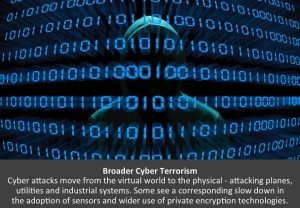Bretton Cole
Editor-in-Chief
Over the summer, Crowder was hit with a damaging ransomware virus. The virus, dormant in the college’s system since November 2018, surfaced on July 11 and rendered the college’s email, website and computers useless. Though no data was breached or stolen, the process to restore and replace Crowder’s infrastructure is ongoing.
The cyberattack not only shut down the system, it demanded the college pay a stunning $1.6 million ransom to release control back to the college. After contact with the FBI and Crowder’s insurance agency, the college was advised to not pay the ransom – nor did they have readily available the resources to do so.
Dr. Coltharp, Crowder College’s president mentioned that one of Crowder’s goals as a college is to keep tuition rates as low as possible, especially as a community college. To pay the ransom would have likely required raising tuition rates, something they didn’t want to do. The fear of raising tuition, along with the advice from the FBI, affirmed the decision to rebuild the system from the ground up rather than pay the ransom to release control.
Not paying the ransom, though, has its consequences. Dorms are still without Wi-Fi, computer labs are still down and the restoration of email and other functions have yet to be completed.
“There’s no playbook for how to do this,” Dr. Coltharp says of the recovery process.
There wasn’t a blueprint for the college to follow as a way to secure their network and rebuild them in a way where they weren’t vulnerable to new attacks. The team is working hard with other tech groups to reach that goal.
Updates to the system include more safeguards, firewalls and monitoring systems to scan for future attacks. Dr. Coltharp explained it wasn’t a matter of if future attacks would happen, but a matter of how quickly the college will be equipped to stop them.
Crowder’s Information Technology computer technician Gregory Gentry explained the college is placing an emphasis on modernizing the system as they rebuild it to reduce the likelihood of reinfection from the virus.
Following the attack, however, Crowder was faced with a pressing issue: classes were scheduled to begin in barely more than a month. Students were still planning to enroll and finalize schedules, but the entire computer system was locked down. The college resorted to the old-school, paper method to keep the process operational.
The journey to enroll students was a difficult one, but Dr. Coltharp was pleased with how patient those affected have been throughout the summer and into the start of the fall semester. He acknowledges, however, Crowder is not alone in dealing with cybersecurity issues. Over the summer, there seems to have been an uptick in attacks locally.
“Cyberterrorism is the new warfare,” computer technician Gregory Gentry claims. “Why launch a full-scale invasion or a nuclear strike when you can just shut down someone’s power grid from the comfort of your home?”
That’s exactly what happened to Crowder and other institutions over the summer. Gentry admits it’s not an easy task, but matching the U.S. on an open battlefield definitely isn’t an option. Cyberterrorism is “the next best choice.”
Crowder is still staggering from the results of the attack, so it’s certainly effective. A local Christian radio station, KNEO, also suffered from a similar attack this summer. This type of “warfare” isn’t going away.
The Joplin Globe reported in August that a ransomware attack hit more than 20 local governments on the same day. The Texas government believes all the attacks originated from the same source.
The ransomware virus that infected Crowder’s system in July was not an isolated event. Dr. Coltharp and the Crowder administration understand that and are responding based on that understanding.
“It’s sad,” Dr. Coltharp admitted. “Obviously these were very smart, very intelligent people. If they [had] put that energy to a good cause, then society would be a little better off than them using that energy to hack into a college.”
While the road to recovery and restoration is a long one, Crowder intends to do it right. Dr. Coltharp explained they realize it’s not a matter of if another attack will come, but rather how quickly they’ll be able to stop it.
“I think violated is probably the best term,” Dr. Coltharp said, describing how the attack has made the college administration feel. “It’s sad.”
Though the semester may not have begun according to plan, Dr. Coltharp assured Crowder administration and staff are working hard to fix it the right way and be better prepared to address the future of cyberterrorism and tech-driven warfare.

Leave a Reply